It’s a big week for TEF and new guidance is out on access and participation. No real news on the post-18 review but it’s apparently coming “in the Spring”. Policy watchers will remember that these terms are flexible in government circles – optimists enjoying the recent sunshine and the daffodils will think Spring is upon us but officially we’re still in Winter (and all the snow last year was in March)– and Spring could mean June….when Brexit may still be a big distraction….
With that in mind, we’ve saved Brexit for the end – and it’s only a short comment.
Independent Review of the TEF
1st March was the deadline for the call for evidence for the Independent Review of the TEF. BU submitted a response which you can read here.
The UUK submission was widely covered in the press, mostly because they were very critical of subject level TEF. Their press release says: In this report, UUK – representing 136 university members – states that overall the TEF is having a tangible effect on the sector, but there is still some way to go to improve the system. In particular, UUK calls on the government to reconsider plans for subject-level assessment following the challenges arising from pilots in 89 universities, and to look again at its value for students, universities and taxpayers. In it, UUK concludes:
- The TEF is having an impact on the sector, in teaching and learning strategies and the monitoring of outcome measures.
- It is however hard to gather conclusive evidence of its contribution to teaching and learning experience and outcomes.
- Its definition of excellence is weighted heavily towards employment outcomes, without full consideration of a student’s overall study experience and the wider benefits of teaching and learning for students and society.
- Awareness of the TEF is still low among students while gradual and piecemeal changes have made it complicated for them to understand or to use it most effectively.
- New governance arrangements should be made to ensure the government, the Office for Students, students and providers have a clear stake in strategic decision-making.
- A year into piloting subject-level assessment, there is considerable doubt over whether this will drive real value for students, while it is adding significant complexity and cost which could divert resource from other student-focused areas.
UUK believes that plans for subject-level TEF should not proceed until the limitations of the methodology, its resource impact, and the actual value of its contribution to student decision-making, have been fully considered.
Estimates from UUK put the cost of taking part in year two of the TEF at £4 million for participating universities, a figure which would increase significantly with a full roll out of subject-level assessment. UUK is calling for further consideration to be given to whether the aims of subject-level assessment could be met through existing or alternative information sources such as Unistats, university websites and league tables. Further work into this area should also look at the risks of the subject-level TEF; including concerns around the quality of the data and metrics, and their ability to support students in important and complex decisions.
William Hammonds of UUK writes about the UUK response on Wonkhe here:
the focus should be on ensuring institutional TEF makes a positive contribution to teaching, learning and student decision-making before significantly increasing the complexity of the exercise. Our concerns are:
- Subject-level assessment will be large, complex and costly and won’t produce reliable judgements.
- It won’t support good quality teaching and learning and instead will encourage universities to chase rankings.
- It won’t help student decision-making, only adding to the volume of information already out there.
David Morris, formerly of Wonkhe and now of the University of Greenwich, writes on Wonkhe about how to rescue the TEF and make it worthwhile
- Part of the government’s problem in persuading the sector, students, and wider public of the need for TEF has been its insistence that it is about enabling better student choice. This is clearly complete tosh, and is being borne out by early data we have on students’ general unawareness and indifference about an institution’s TEF rating.
- Long-time readers of Wonkhe may well remember that the real genesis of TEF (and indeed the entire new regulatory regime) came as much from government officials’ belief that universities were held insufficiently accountable for teaching quality under the old quality assurance regime, particular compared to research, as much as it came from any Tory ideologues’ insistence of creating a market for student choice.…Greater honesty about TEF’s role in asserting the public as well as student interest in university accountability would also better reflect what we have finally acknowledged about higher education funding: ultimately, the taxpayer is footing most of the bill. Acknowledging this fact, as well as the wider limits of marketisation, could lead to an accountability exercise with greater scope for nuance, recognition of diversity, and more conducive towards actually making teaching and learning better.
He defends benchmarking (which we agree with – although we have concerns about forced differentiation)
- But we shouldn’t overlook the instances where TEF has pointed us in the direction of a more progressive and fairer assessment of the state of the UK university sector. This is most notable in the instance of benchmarking TEF metrics, by far the biggest leap forward in assessing UK universities’ quality of student experience upon their actual merits rather than irrelevant and archaic qualities such as ancientness, research power, or international prestige. Benchmarking is what distinguishes TEF from the traditional media league tables, by acknowledging that different institutions’ student characteristics give them a different starting point from which to be evaluated.
- I really hope that the Pearce Review does not abandon this approach. If TEF abandons benchmarking and moves in a more qualitative direction, the spectre of the early-nineties teaching quality assessments might begin to emerge, with judgements on the quality of teaching being made almost concurrently with perceptions of prestige and research quality. This would be a huge step backwards.
And urges the review to drop LEO (something we also agree with – it is interesting but the data can’t tell you anything about current courses, if it can tell you anything about courses at all….what it tells you about is the economic and employment situation of students who graduated a number of years ago, which may or may not have much to do with their university studies…)
- Regular readers of Wonkhe will know that I am far from a LEO cynic. Indeed, I am really enthused about the power that richer data about graduate employment outcomes for better policy making in higher and further education and about the youth labour-market efforts to make society more just.
- But beyond ideological objections (which are well documented elsewhere), on a practical level, TEF is not the right place for the DfE to play with its sparkly new toy. The piloted inclusion of two new supplementary LEO metrics in TEF appears to have produced bizarre results. Upon brief examination of the national data, the spread of outcomes once benchmarked across providers appears to be very narrow, with few providers securing either a positive or a negative flag. Under the current flagging system, if a new TEF metric does not show a sufficient spread of performance, it is hard for me to see how it will aid panel decision making or provide much value.
- Then there is the lag effect of LEO’s inclusion in TEF. If TEF 2020-21 goes ahead as planned, it will include assessment of the graduate employment and salary outcomes of students who entered university in 2008 (i.e. my own fresher year). It will also assess those graduates’ employment outcomes in the 2014-15 tax year. This seems nonsensical, both in fairly assessing institutional performance, and in providing information to applicants.
Post-18 review
After we trailed the Augar report it didn’t come out – and we aren’t now sure when it will. The PM answered a question about it in PMQs this week – “Philip Augar and his panel are working on the report and we will look seriously at the proposals they bring forward”.
The House of Commons library has published a research briefing on the post-18 education and funding review. The covering note:
- says that the review is due to report I the Spring 2019 – so presumably that is still the plan.
- confirms that the Review recommendations will be consistent with the Government’s fiscal policies to reduce the deficit
- says that the recommendations will not place a cap on the number of students who can access post-18 education.
- This briefing paper discusses the Review process and gives an outline of the post 18 funding system in England.
- It includes helpful links to some of the mission group and other influential responses to the original call for evidence – ours is here
- It suggests possible options for reform that the Review may propose, such as the lowering of higher education tuition fees and analyses the impact of these proposals in detail, including looking at the Treasury Committee and House of Lords Economic Affairs Committee reports, which we have reviewed in this update previously.
- It includes a summary of impact
The BBC have published this story suggesting the reasons for the delay are Brexit plus a disagreement about the outcomes of the review – which may have pushed it back to the drawing board…
- But it seems increasingly likely that the all-consuming politics and economic uncertainty of Brexit have pushed back the review.
- There are also claims of significant differences in what 10 Downing Street, the Treasury and the Department for Education want from the shake-up of fees. According to sources, a headline cut in fees is seen as important for the prime minister’s office – described as being the “retail offer” needed to respond to Labour in a general election.
- The Treasury does not want to commit to extra direct funding while there is such uncertainty about future public finances. But at the same time, the Department for Education is reluctant to go ahead with a cut in students’ fees until it is clear how that income could be replaced.
- The debate is said to be “stuck on the roundabout” – and even when the Augar review publishes its findings, there could be delays before the government responds with any decision.
- This might not be until the autumn or later – in a political calendar full of uncertainties about budgets, elections and leaders.
- However, other senior university figures say the prime minister might want to push ahead with changing fees as soon as Brexit has been achieved, as a way of showing the government still has a grip on domestic policy.
- There are also arguments that when the review is so strongly linked to Theresa May, any change at the top could see it disappearing into the long grass. Charles Heymann, a higher education consultant who formerly worked at the DfE, says: “It wouldn’t be the first education review to end up gathering dust on Whitehall shelves.”
In the meantime, the lobbying continues. Shakira Martin, the NUS president, wrote for Wonkhe.
- I’m still adamant that maintenance grants need to return, so we support working class students and put an end to the obscene situation whereby they graduate with the highest student loan debts. The Diamond Review in Wales shows this can be done in a way that really ensures the poorest students are properly supported, and we know that the Augar has looked at the findings of Diamond in detail. On top of that, just about every voice in the sector, including UUK, the Russell Group and Million Plus argues they should return, so I remain hopeful.
- We also need to provide better funding for those on part-time or distance learning courses, or otherwise support flexible learning – this should include targeted support like childcare funding for part-time students and travel grants for commuters. The decision to scrap NHS bursaries for nurses, midwives and other healthcare professions needs revisited as it has clearly failed those students and the health service.
- There are lots of other changes we have suggested that would make a huge difference to students such as monthly student support payments monthly to help students budget or increasing the threshold for maximum support from £25,000 for the first time in over a decade. And all this is not even to start on adult learning – student support is inadequate in HE – but at least it exists. We need to radically improve the offer for those in FE and I think the Augar panel will recognise that too.
And HEPI have a blog by Andy Nicol, Managing Director at QS Enrolment Solution about a student survey about the perspectives of prospective students:
- “This year’s survey (of 1,700 respondents, mostly aged 16-18) sought to unpack what they believe to be the appropriate balance between their individual investment in their degree and that of the state.”
- 39% of respondents say that the debt they will take on makes them less likely to apply to university than they otherwise would. It is perhaps not surprising then that overwhelmingly (88%) survey respondents believe that Government should be funding at least half of the teaching cost of an undergraduate degree. These prospective students also said that their tuition fees being spent on student accommodation, course facilities, careers support and links to employers would represent a return on their investment.
- HEPI’s own research last year found that 74% of students want more information on where their fees go. According to university accounts, the research also found that typically only around 45% of each student’s fee goes on the direct costs of teaching – such as staff salaries. The majority of the remainder is also spent on areas that benefit students. After teaching, the next biggest cost is buildings. Then come other high priorities like information technology, student support services (such as counselling and careers advice), widening participation activities and the students’ union.
- … Now is the time for Government to work more closely with universities to ensure it communicates how potential new funding arrangements will represent value for money. With political, economic and demographic challenges facing the sector, it is more important than ever that institutions understand how to engage better with potential recruits. That’s why as part of this report we have published an Action Plan for Domestic Student Recruitment in 2019to help universities and Government do just that.
Widening participation
The OfS published guidance for institutions to produce their new Access and Participation plans for 2020/21. Key points include:
- The removal of the guideline percentage of how much of the higher fee income an institution should spend on widening participation, success and progression activities.
- The OfS has stated institutions can expect increased scrutiny, rigour and challenge on their plans, in part to kickstart the stagnation of social mobility. Including consideration of whether institutions are at risk of breaching their conditions of registration with the OfS.
- Focussed, evidenced, analysis of an institution’s current performance will link with the institution’s strategic aims and priorities for rectifying inequalities in access, student performance and attainment, and progression. The OfS will assess the feasibility of an institution’s aims and the appropriateness and challenge within the chosen targets.
- All targets should be outcomes based, rather than measuring outputs.
- A greater focus and breakdown on ‘investment’ (spend) is required for access measures. This fits with current Government rhetoric on ensuring widening access spend is effective and focussed towards the most efficient and successful outcomes (supported by robust evidence of impact).
- Evaluation, impact and research of widening participation interventions remains important.
- All providers are expected to use the POLAR measure (number of young local population that progress to HE) to provide a level of consistency and comparability. A national Access and Participation dataset is also expected to be published shortly.
The OfS has also set itself national key performance measures which address the inequalities they are most concerned about – the gaps that remain the most challenging to tackle and affect large student groups. In order to meet these measures all institutions are expected to have a target which contributes towards improving outcomes in these KPI areas.
- ENTRY GAP – Eliminate the gap in participation at higher-tariff providers between the most and least represented (POLAR) groups, from a ratio of 5:1 to a ratio of 3:1 by 2024-25.
- DROP OUT GAP – Reduce the gap in non-continuation between the most and least represented groups (POLAR) – eliminating the unexplained gap by 2024-25, and eliminating the absolute gap (the gap caused by both structural and unexplained factors) by 2030-31.
- ATTAINMENT GAP – Reduce the gap in degree outcomes (1sts or 2:1s) between white students and black students, eliminating the unexplained gap in degree outcomes (1sts or 2:1s) between white students and black students by 2024-25, and eliminate the absolute gap by 2030-31.
- ATTAINMENT GAP -Reduce the gap in degree outcomes (1sts or 2:1s) between disabled students and non-disabled students by 2024-25.
The OfS acknowledges that other non-KPI measures remain important too – addressing the decline in the number of mature students in higher education and access, success and progression for care leavers.
Sarah attended a parliamentary reception this week at which Chris Millward, Director for Fair Access and Participation, emphasised the scrutiny and rigour with which the OfS will be examining the new plans, pushing for ambitious (but realistic) progress, and setting out a commitment to tackle underperformance early on. At the reception there was much discussion of the US universities’ Princeton model of admissions with Chris Millward calling for more English universities to step away from grade based entry and make far more use of contextual admissions, including assessing the personal qualities of grit and resilience which he felt were sure indicators of graduate success within disadvantaged students. Chris confirmed that the OfS’ powers didn’t extend to direct interference in an institution’s admission policy and that the Access and Participation targets would be one of their key methods to push the sector to solve the disadvantage gaps.
Universities Minister, Chris Skidmore, gave his first speech on access and participation on the day the guidance was launched. He spoke during a tour of Nottingham Trent University and praise the institution for its work in advancing social mobility. He announced that Nottingham Trent, alongside Kings College London and the Behavioural Insights Team have been awarded the OfS contact for the WP Evidence and Impact Exchange. The Minister said: I want to use this occasion today to outline my own five-part vision for the access and participation agenda – to help set a strategic direction for the sector and support the OfS in holding providers to account on these vitally important issues.
- His speech acknowledged the importance of the removal of the student number caps, spoke about the narrowing of the gap with more disadvantaged young student applying to university, whilst acknowledging: All this is good news and a welcome move away from the days when going to university was just for the fortunate few. Yet, we all know that behind the positive headlines lies a much more complex picture of inequality and progress is not as rapid as it should be. And that takes me on to the first point in my plan – namely that we now need a more nuanced approach to ‘access’ and a greater recognition of the true access gaps. Major themes I want to see the sector and the OfS addressing are geographic disparities and widening access for specific groups, including White working-class as well as Black and minority ethnic students.
- Sam Gyimah, the previous Universities Minister, wanted disadvantaged young people to aspire to and enter the highest tariff institutions. Chris continues this challenge to the high tariff institutions to become more accessible and think beyond entry grades whilst acknowledging that high tariff doesn’t necessarily mean best: I also want to reverse the trend of students from currently under-represented groups being less likely to apply to high-tariff universities. In 2018, 17% of students who were eligible for free school meals entered higher education in the UK. Yet only 2.7% of them enrolled at high-tariff providers. Now, I’m not saying that high-tariff institutions are necessarily the best option for everyone. Plenty of excellent lower-tariff providers offer students a first-rate education with exceptional graduate outcomes, and are the right choice for many. But what worries me is that some people may not be considering high-tariff providers even when they could clearly benefit from them – showing how prior social and educational experiences can all impact on an individual’s life choices. I am genuinely saddened when I hear people hesitating about applying to one of our world-leading providers because they simply don’t believe that going to a university like that is really for people like them… The UK is blessed to have a diverse, multi-cultural society, and it is simply not right that, despite displaying obvious talent, some people still feel a ‘top’ university education is out of reach for them… This is why I also welcome the fact the Duchess of Sussex recently added public prominence to this issue when expressing shock that too few professors in the UK are from diverse backgrounds. She is right – as she herself said, “change is long overdue”, and if we want our student communities to reflect our wider population, then we have to start thinking seriously about the role models and examples we are setting them.
- Chris spoke about the Secretary of State for Education’s guidance letter to the OfS setting out the Government’s expectations. They called for greater and faster progress in access and participation, including at the most selective providers, as well as for key target groups, including disabled students and care leavers. He also spoke of the Race Disparity Audit initiative when he called for the OfS to hold universities to account for attainment disparities through their Access and Participation plans and, if necessary, to use its powers to challenge any provider failing to support equality of opportunity.
- Chris was stern on the effective use of WP monies, particularly making better use of evidence to inform spend: £860 million [the combined planned spend by universities on WP in 2018/19] is not an insignificant sum and, so, I believe it is essential that this money is used well, and that any future spending is underpinned by clear evidence and evaluation. Although some providers already do this, for too long the sector as a whole has been too slow in using evidence to inform its approaches and to understand what really works.
- He also wants to see more collaboration across the sector: Despite numerous providers undertaking excellent work in the access and participation space, by and large, the sector has been too piecemeal in its approach and too many providers have got used to doing their own thing. I will be the first to admit that this may well be a logical consequence of policy development – with an emphasis on market-style activity, a lack of data-sharing, and too little infrastructure to encourage collaboration. But now is the time for this to change.
- Finally, he turned to the importance of data and consistent, reliable measures to track progress in tackling disadvantage. When it comes to data, I know there is a saying that ‘what gets measured, gets managed’…higher education providers have focused less on the outcomes of their disadvantaged students than they should…Differing approaches have not helped. The key measure to drive widening participation in higher education has traditionally been POLAR…The POLAR system has many strengths, and the insight it has provided has helped lead to genuine progress in opening up access to university. Yet, it is also known that POLAR doesn’t always overlap well with other measures of disadvantage – such as eligibility for free school meals…the principal measure used in schools and forms the main basis for extra support and funding. He spoke of UCAS’ work to find new and better predictors of disadvantage in higher education that take account of much more than just where someone grew up. It’s also why I welcome the OfS’s commitment in its access and participation strategy to work with providers to look not just at POLAR, but other aspects of disadvantage to ensure this work can really transform the life chances of young people.
- He also welcomed the Transparency Duty which requires institutions to publish data on the application, offer, acceptance, completion and attainment rates of students, divided by ethnicity, gender and socio-economic background: And on this, I further welcome the OfS’s requirement that providers set out their ambitions for improving access and participation for up to five years and report annually – something which I hope will keep everyone’s eye on the ball and prevent us from becoming complacent. He also spoke about the newly announced formation of a Data Advisory Committee stating it would help me ensure we are not only using the right data to shape the access and participation agenda, but are using it in the right way. I therefore look forward to working with the OfS, this Committee and the wider sector to find ways to refine and advance the data we use.
- Interestingly he also mentions the (delayed) Augar Review and attempts to reassure the sector as a counterpoint to the leaked snippets and speculation of disastrous cuts for HE within the past press: I know many in the sector have been critical about what could emerge from the Review’s recommendations and its potential impacts on access and participation activities. Let me reassure you today that progressing access and successful participation remains a top focus for this government and it will be a key lens for me and others in government as we decide how to take the Review forward. My key outcome for the Review is that we create a truly joined-up system, which is even better at promoting social mobility and countering childhood disadvantage. I also encourage us to view the post-18 Review as an opportunity to think again about how we view disadvantage, to ensure we are putting our energy and investment where it is most needed. Reading between the lines I’m not sure this is quite as reassuring as Chris intended!
Disadvantage starts early – Universities Minister Chris Skidmore is a believer that disadvantage starts at birth and has committed to working with Nadhim Zahawi (Minister for Children and Families) to tackle disadvantage. He has announced they will be working together to improve support for care leavers throughout the whole education system, noting that only 6% of care leaver attend universities and are the most likely student group to drop out. He urged the OfS to do all they could to support care leavers. Nadhim also announced an additional 1,000 health visitors will be trained to support children’s early language and communication needs this week. Noting that children who start school with poor vocabulary are twice as likely to be unemployed as an adult. The health visitors will detect early signs of speech and language delay and take early action when it can have the most benefit.
Level 4-5 Qualifications Review Outcomes
The DfE have published a research report on the Level 4-5 Qualifications Review. Key points:
- L4-5 qualifications support a diverse mix of students. The qualifications are undertaken by a slightly higher proportion of ethnic minority and male students than other HE and FE programmes, and there is also a relatively high proportion of older learners and learners with disabilities
- Nearly all FE colleges (97%) and most HEIs (88%) provide L4-5 qualifications. Nearly 200 private and adult community learning providers deliver L4-5 providers, which includes 48 alternative providers in HE that are not FE colleges.
- The L4-5 market is diverse. There were 3,368 different L4-5 qualifications that were available to learners in 2016/17, of which 2,633 were developed by HEIs and delivered by FE and HE providers.
- The size of the L4-5 market is relatively small, compared to HEIs and FE providers’ overall offer. There were 111,420 learners that studied an accredited L4-5 qualification in 2016/17, which comprises only 2% of all vocational qualifications awarded. In HE, there were 75,632 learners that undertook L4-5 qualifications in 2016/17, which accounted for 3% of all HE learners.
- L4-5 programmes not delivered through apprenticeships are most commonly taken for subjects in health, public services and care (composing 23% of all L4-5 learners); business administration and law (17%); and Engineering and manufacturing technologies (12%).
- Just under 40% of learners on HE-accredited L4-5 programmes progressed to full-time employment and 26% progressed to full-time further learning. This reflects the dual aims of L4-5 qualifications. The proportion of learners that progress to employment does, however, vary significantly by subject area and qualification type
Recommendations:
- Support the promotion to providers and learners of L4-5 qualifications that provide direct entry to the labour market, by being actual or de facto licences to practise. Awareness of these qualifications can be low among learners, which reduces take-up.
- Incentivising HEIs to recognise L4-5 qualifications as providing exemptions from the first or the first and second year of a degree programme and encouraging joint working with HEIs and AOs to harmonise content with degrees and L4-5 provision.
- Stimulating FE providers and HEIs to expand their L5 provision, as this appears to be provided less comprehensively than L4, despite having higher learner take-up.
Apprenticeships
The DfE have published Apprenticeship and Levy Statistics for February 2019
- As at 31 January 2019, 122,700 commitments had been recorded for the 2018/19 academic year (114,000 fully agreed and 8,700 pending approval). This compares to 98,000 commitments recorded for the 2017/18 academic year at the equivalent point last year
- Of the 122,700 commitments recorded so far for 2018/19, 60,800 commitments were for apprentices aged 25 and over. 38,200 commitments were intermediate apprenticeships, and 52,000 were advanced apprenticeships.
- In 2017/18, there were 48,150 higher level (level 4+) apprenticeship starts, compared to just 3,700 in 2011/12.
- Between 2015/16 and 2016/17 higher level starts increased 34.7per cent from 27,160 to 36,570.
- Between 2016/17 and 2017/18 the higher level starts rose 31.7 per cent to 48,150.
- In contrast, both intermediate (level 2) apprenticeships and advanced (level 3) decreased between 2016/17 and 2017/18 by 38.1 per cent and 15.9 per cent, respectively.
The DfE have published an Apprenticeships Study on non-completion. This is NOT about degree apprenticeships but FE learners and apprentices – but still interesting
- Non-completers commonly lacked information about the content of their course and how it would be delivered before they began. Whilst motivated, a lack of upfront information before they started the course meant that expectations tended to be limited to an expectation that the course would be organised, run smoothly, and enable them to work to pass.
- Non-completers reported mixed experiences of their courses and apprenticeships. However, they had commonly experienced challenges such as a lack of sufficient flexibility, loss of child care, and employers not allowing them enough time to do their coursework.
- Non-completers dropped out when one or more of three key areas were not satisfied. They dropped out when core personal issues took priority over learning; with family, health, and finances commonly taking priority. Drop out occurred when learners did not see their course as valuable, meaning the content and level were not appropriate to enable them to pursue their career goals. Finally, learners dropped out when their course or apprenticeship failed to meet their expectations for functional delivery.
This is interesting because of course many of the same issues arise with university non-completions. Non-completion (or continuation as the TEF calls it) is a key metric for TEF, precisely because the DfE believe that the value of the programme and the functional delivery of it, to use the terms above, are key indicators of the quality of a programme and so continuation is a proxy measure for quality. Of course that ignores the personal issues. The report says: “Although learners were generally tipped into non-completion by an issue aligned to one of these areas, they tended to be facing multifaceted issues which overlapped across two or more layers”. So it’s not that simple.
Key Recommendations:
- More comprehensive and accurate information up front about the content, structure and expectations for a course
- Proactive and holistic support and flexibility to ensure they can continue to manage their course alongside their personal priorities
- Improvements to course delivery so that courses and apprenticeships are more consistently delivered across the country.
The Sutton Trust have conducted a survey of parents with children aged 5-16 on degree level apprenticeships.
- 75% of parents said they would be confident offering children help and advice were they to apply to a degree-level apprenticeship
- 27% said they would advise their child to take a degree level apprenticeship over a universities degree course, with 31% indicating they would make the opposite recommendation
- Of those parents who would advise their children to undertake a university degree course, 68% intimated that this was because they believed it offered better career prospects, whilst 29% said it was because they lacked knowledge about apprenticeships in general
Young People Not in Education, Employment or Training (NEET)
The DfE and ONS have published statistics on the proportion of young people not in education, employment or training.
- For quarter four (i.e. October to December) 2018, 11.3% of 16-24 year olds were NEET, a slight increase of 0.2 percentage points from quarter four of 2017.
- The age 16-17 NEET rate was 4.2%, an increase of 0.6 percentage points. The 18-24 NEET rate was 13.1%, increasing by 0.2 percentage points.
- However, none of these annual changes to the NEET rates were statistically significant
Brexit
It now looks increasingly likely that there will be a short delay to Brexit unless the deal, perhaps amended in some way with concessions from the EU, is passed on 12th March in the newly scheduled meaningful vote.
Resignations and the formation of the Independent Group of MPs don’t really change the arithmetic yet. The shift of the Labour party’s position on a second referendum also does not make much difference either while the vast majority of MPs continue to vote along party political lines.
There will need to be many more resignations or radical changes of position on the deal if it is to pass in March. That is still possible, but a good number of Conservatives, from both the remain and the leave side, will need to find a way to support it, supported by a good number of Labour Brexiteers seeking to avoid a second vote. Remember that more than 100 MPs need to change their view on the deal for it to go through.
However, UK citizens worrying about their plans for travel to the EU may therefore find that they don’t need an International Driving Licence or private health insurance for an Easter trip. No deal is still, however, firmly on the table, so you may need them for the summer. The overwhelming flood of information from the government has included reissuances for EU colleagues and EU students about travel to the UK after a no deal Brexit – but of course the continued uncertainty is unhelpful. And it’s sobering to note that whatever the result of the current flurry, even if the deal is signed we will have to go through it all again before the end of the transition period in December 2020. There won’t be proper certainty about anything for a long time.
A delay beyond June still seems impossible – although it might seem a lot more possible by the time we get there.
Consultations
Click here to view the updated consultation tracker. Email us on policy@bournemouth.ac.uk if you’d like to contribute to any of the current consultations.
Other news
OfS Student Panel: The Office for Students (OfS) has announced five new members of its student panel, which advises the OfS board to ensure student interests are reflected in OfS’ work. Georgia Bell is President of the students’ union at the Northern School of Art; Rose Bennett is Student Experience officer (postgraduate) at the University of Birmingham; Samuel Dedman is vice-president education at the University of Southampton students’ union; Joshua Sanderson-Kirk is president of the student association at the University of Law and Sabrina Mundtazir is a student nurse at the University of Huddersfield.
University enterprise zones: The Treasury and BEIS have announced a £10 million fund to help develop proposals for up to 10 new university enterprise zones in England. Treasury Minister Robert Jenrick and Universities and Science Minister Chris Skidmore launched the fund during a visit to Nottingham University, which has piloted a University Enterprise Zone that is supporting start-ups and enterprises in the East Midlands. Universities Minister, Chris Skidmore, stated:
Our universities are among the best in the world, and when they join forces with our ambitious and innovative small businesses, they have the potential to meet the grand challenges of the future.
HESA have published stats on staff employed in HE providers for 2017/18
Student sexual harassment/violence: Dig-In have published an infographic on sexual harassment and violence experienced by students based on a survey.
They say:
- 56% of students have experienced unwanted sexual behaviours (such as inappropriate touching, explicit messages, being cat called, followed and/or being forced into sex or sexual acts)
- Only 15% of students believe that they are the victims of sexual harassment
- And only 8% have reported an offence.
- Only 25% of students who were forced into having sex reported it
- 53% of incidents were perpetrated by another students and 30% took place on campus
They also say that only 52% of students understand that it is not possible to give consent if you are drunk
 The Participant Agreement Form has been updated, so if you are planning on submitting an ethics checklist and need to include a participant agreement form, please make sure you download and adapt the current version available from the Templates Section.
The Participant Agreement Form has been updated, so if you are planning on submitting an ethics checklist and need to include a participant agreement form, please make sure you download and adapt the current version available from the Templates Section.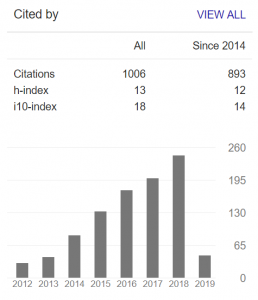

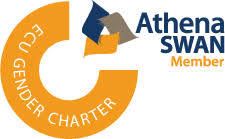 In the
In the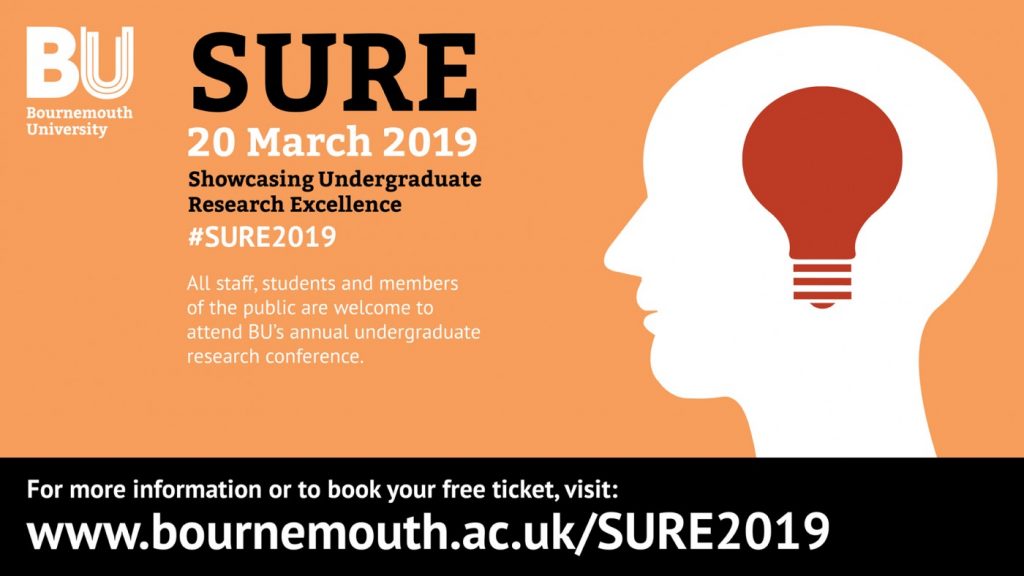



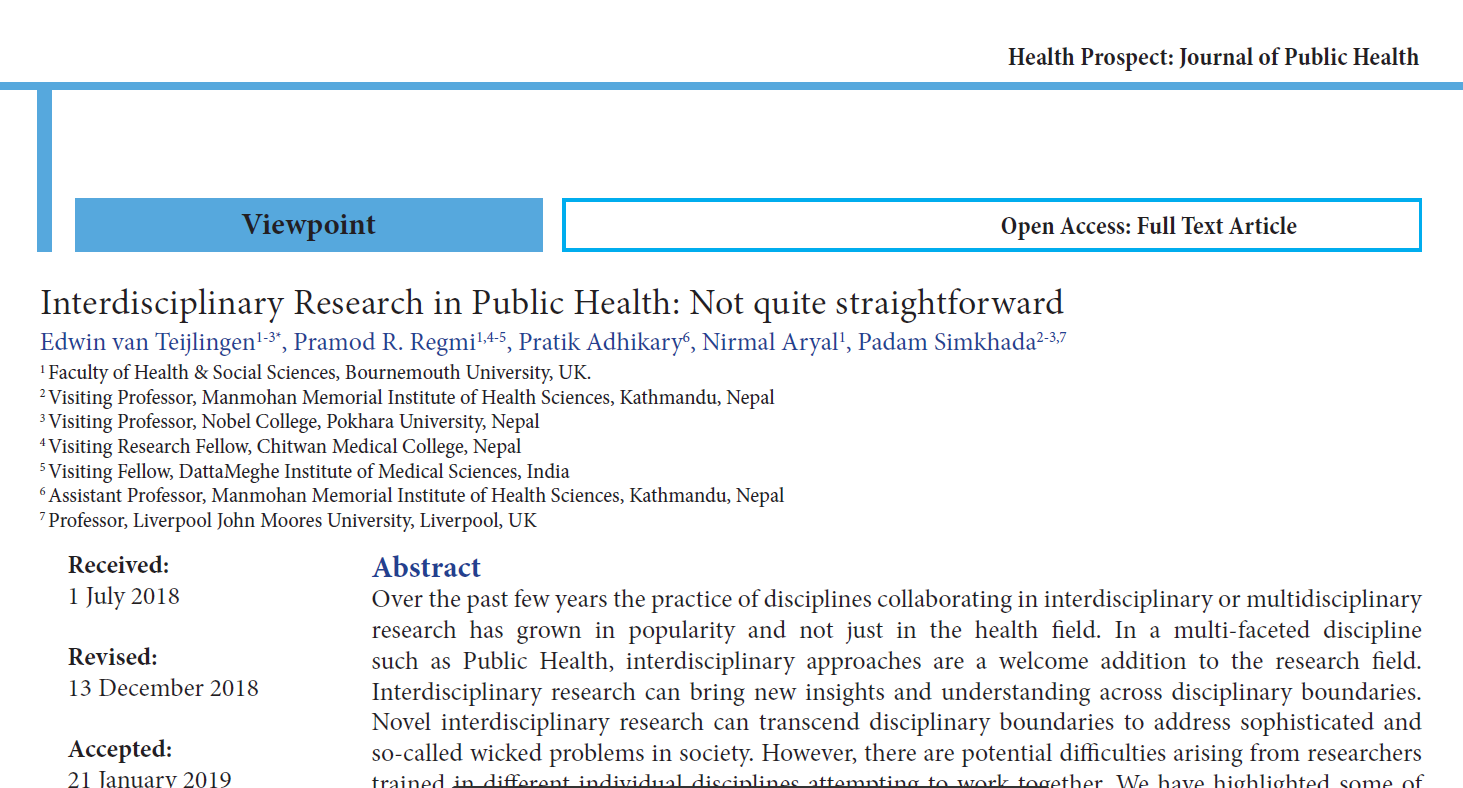

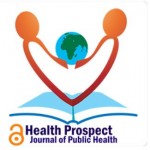
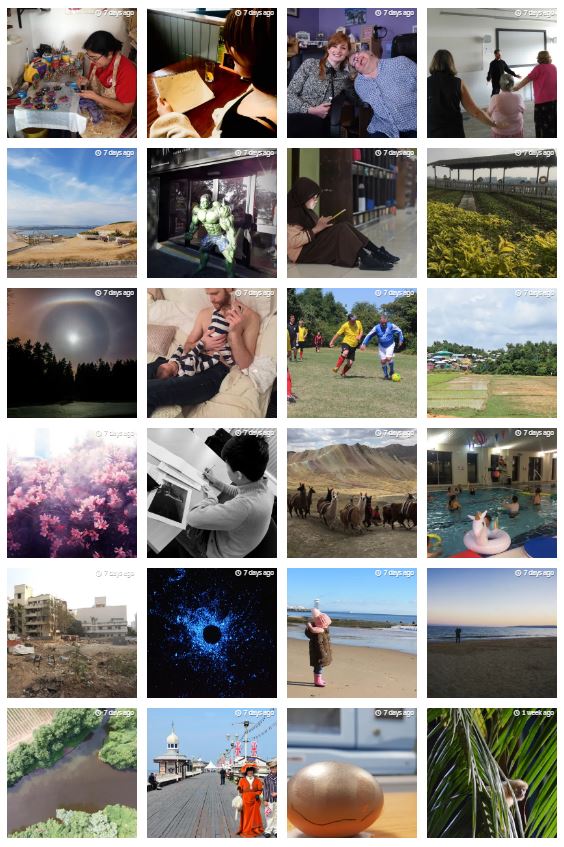
 Every BU academic has a
Every BU academic has a  By clicking on this box, on the left of the Research Blog home page just under the text ‘Funding Opportunities‘, you access a
By clicking on this box, on the left of the Research Blog home page just under the text ‘Funding Opportunities‘, you access a 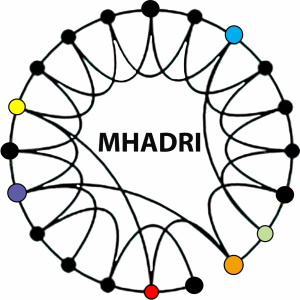












 New CMWH paper on maternity care
New CMWH paper on maternity care From Sustainable Research to Sustainable Research Lives: Reflections from the SPROUT Network Event
From Sustainable Research to Sustainable Research Lives: Reflections from the SPROUT Network Event REF Code of Practice consultation is open!
REF Code of Practice consultation is open! ECR Funding Open Call: Research Culture & Community Grant – Apply now
ECR Funding Open Call: Research Culture & Community Grant – Apply now ECR Funding Open Call: Research Culture & Community Grant – Application Deadline Friday 12 December
ECR Funding Open Call: Research Culture & Community Grant – Application Deadline Friday 12 December MSCA Postdoctoral Fellowships 2025 Call
MSCA Postdoctoral Fellowships 2025 Call ERC Advanced Grant 2025 Webinar
ERC Advanced Grant 2025 Webinar Update on UKRO services
Update on UKRO services European research project exploring use of ‘virtual twins’ to better manage metabolic associated fatty liver disease
European research project exploring use of ‘virtual twins’ to better manage metabolic associated fatty liver disease